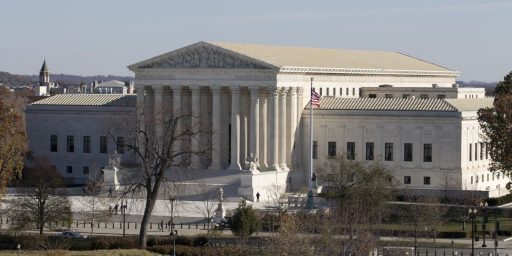Amazon Sues Over Internet Taxes
New York is trying to collect taxes from online retailers who ship goods to the state, even if they have no brick-and-mortar presence. Amazon is suing, claiming the law is unconstitutional.
Amazon.com has filed a lawsuit challenging New York State’s new law forcing online retailers to collect sales tax on shipments to state residents. On Friday, Amazon filed a complaint in State Supreme Court in Manhattan objecting to the law, which was approved as part of the $122 billion state budget that Gov. David A. Paterson signed last week. The law is expected to raise about $50 million.
The issue is not whether people should pay tax when they buy goods from out-of-state sellers like Amazon. For decades, the state has required them to pay sales or use tax. The question is whether the vendors must collect that tax on behalf of the state. Generally, only those companies that have a physical presence — like an office or store — in the state where the purchase is made are required to collect the tax.
The new law is based on a novel definition of what constitutes a presence in the state: It includes any Web site based in the state that earns a referral fee for sending customers to an online retailer. Amazon has hundreds of thousands of affiliates — from big publishers to tiny blogs — that feature links to its products. The state law says that thousands of those have given an address in New York State, although the addresses have not been verified.
I never understood how states could collect sales taxes from out-of-state merchants on purchases that took place elsewhere. If anything, it would seem that the state where the business was located would have the most legitimate claim on sales taxes.
UPDATE: Glenn Reynolds provides a handy link to a law review article he wrote on this subject in 1996. Well, not exactly this subject. The article is entitled, “Virtual Realities and Virtual Welters: A Note on the Commerce Clause Implications of Regulating Cyberporn.” But the issues are very similar.






I’d expect a lot more of these sort of actions rather than less. States are in a pickle.
Most state and local governments are highly dependent on sales taxes and property taxes. Sales tax revenues have fallen off not only due to Internet sales but also due to falling retail sales, generally. I suspect that the portion of those sales that was fueled by dipping into home equity lines of credit won’t be coming back terribly soon.
But that highlights the other problem facing state and local governments. As long as real estate values were predictably rising that meant that revenue increases were automatic, particularly in states like Illinois that reassess regularly. Even in states like California in which reassessment is done when the property changes hands that was pretty frequent as long as values were rising.
But right now it looks as though real estate values will remain stable or even fall. At the very least states can’t expect revenue increases from appreciating real estate.
The great error would be if state and local governments increased marginal real estate tax rates to boost their revenues. It would result in an increased rate of foreclosures. That’s exactly what happened in the Great Depression.
Of course all of this, including Dave’s comments, leave aside the issue of the high taxes in NY being why people are looking out of state for their purchases in the first place… as well as why retailers find it a better deal to leave NY and conduct business there by remote.
I LIVE in the Vampire state, and far as I am concerned, NY has nobody but itself to blame for it’s situation. This bit is simply making it worse.
Ha. Are you doubting the ability of government to tax its citizens? That’s the one thing, the only thing, the government excels at.
Bithead,
Its situation.
I left in 99. Nice place to grow up (upstate), wouldn’t want to pay taxes there.
Quill Corp. v. North Dakota, 504 U.S. 298 (1992) is a Supreme Court of the United States case concerning sales tax. Quill Corporation sells office supplies. North Dakota claimed they owed sales tax since they sold their products in the state. Quill claimed they did not owe sales tax since they did not have a location in North Dakota and did not employ anyone in the state. The Supreme Court unanimously ruled in favor of Quill.
Amazon has a simple, cheap and bloodily effective solution available. Just cut off affiliates in NY. Do it very publicly, and be completely open in the reasoning behind it. Tell the affiliates that they’ll be welcome to rejoin the Amazon family as soon as they leave NY.
The state is left without a case, and thousands of hostile former NY affiliates. Other states get a warning about what will happen to them if they try the same thing.
So why is it that governments have to seek new revenue when they have a shortfall? Shouldn’t they just tighten their belts like everyone else and make cuts? If such a pattern isn’t reversed then the logical outcome is strangulation and death of the economy that the government parasitically thrives upon.
If it only took 5% of the economy to police and educate the populace in the 1950’s then it should only take that much now if the government weren’t trying to do a bunch of things they have no business doing anyway.
Richard R –
I very much like the idea in your 11:24 comment; it’s a logical next step.
Imagining the collective ire of the affected residents of New York City alone puts a cheerfully mean-spirited smile on my face. (And I say that with more than passing fondness for NYers.)
Good on Amazon for filing the law suit; I hope they prevail.
I started to write “This is just the beginning” but it is not. New York was also among several States to subpoena the records of out-of-state internet tobacco sellers, a number of which closed their virtual doors rather than either comply or fund a fight. And is on the brink of a shooting war with Amerinds, who refused to (among many other “Boundary” problems) turn over records.
Still, just the beginning. Firstly, note that Amazon sells more than books. Secondly, consider any other out-of-state business which advertises internet or mail-order items in NY media: the media may be considered “agents” with a bit of creativity.
Yeah, we should pay taxes, and a company is easier to track than its millions of customers. But this would force a company not in New York to incur costs which will be passed on to citizens in all other states: can you say “restraint of trade?”
The Quill decision is still the law of the land, so absent a physical nexus, New York State is, to use the legal term,
SOLon the wrong side of the issue.As Amazon points out, if this sort of non-physical nexus stands, then every advertiser in The NY Times is similarly liable.
Retailers argue that “it ain’t fair,” but stop and think why one pays sales tax. One big reason is that taxes pay for local services: roads, police, fire, schools, or whatever the State decides to use them for. But a schmo in Texas enjoys none of those NY services, and moreover has no voice in electing the NY politicians who decide which taxes to impose.
It’s not a difficult concept. The founders even had a term for it: taxation without representation.